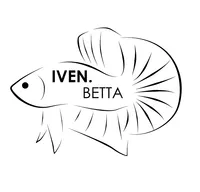



Unless otherwise stated, image is representative of species and not of actual product
Product Details

Size
5cm - 7cm
Betta Dennisyongi is a stunning, rare Betta species admired for its unique appearance and calm temperament. Unlike the more commonly known Betta splendens, Betta Dennisyongi stands out due to its elegant and distinct fin shapes, along with its vivid coloration, making it a highly sought-after fish for collectors and aquarium enthusiasts. This species is native to the slow-moving, shallow waters of Southeast Asia, where it thrives in warm, slightly acidic environments. It is ideal for aquarists seeking a unique and visually striking addition to their freshwater tanks.
Key Features:
Distinct Appearance: Betta Dennisyongi is known for its slender body, flowing fins, and vibrant coloration that ranges from deep blues and greens to reds. Its elongated fin structure sets it apart from other Betta species, giving it a graceful, elegant look.
Rarity: This species is relatively rare in the aquarium trade, making it an exclusive choice for Betta collectors and those looking for a unique addition to their tank.
Ideal Water Conditions:
Temperature: 76°F to 82°F (24°C to 28°C)
pH Level: Slightly acidic to neutral, between 5.5 and 7.0
Water Hardness: Soft to moderately hard water, between 2 and 10 dGH
Tank Size: A minimum of 10 gallons is recommended for Betta Dennisyongi, providing ample space for swimming and exploring. Although they are smaller in size, they appreciate room to move freely.
Tank Setup:
Aquascaping: Betta Dennisyongi thrives in aquariums with dense plant cover and plenty of hiding spots. Include live or artificial plants, driftwood, and rocks to create a natural habitat. Floating plants are highly recommended to help diffuse light and provide areas of shade, mimicking their natural environment.
Substrate: A dark-colored substrate enhances the vibrant colors of Betta Dennisyongi. Soft, sandy substrates are ideal to prevent any damage to their delicate fins.
Filtration: Use a gentle filtration system, as Betta species prefer calm waters without strong currents. Ensure water quality remains high with regular maintenance and cleaning.
Tank Mates:
Betta Dennisyongi can be kept in a community tank with caution. Due to its peaceful temperament, it can coexist with small, non-aggressive species like tetras, rasboras, and Corydoras catfish.
Avoid housing them with fin-nipping species such as barbs or larger, aggressive fish that may stress or harm the Betta.
Male Betta Dennisyongi should not be kept together, as they may become territorial. If keeping multiple males, ensure they are in separate tanks or have enough space to establish territories.
Feeding Habits:
Diet: Betta Dennisyongi is a carnivorous species that thrives on a protein-rich diet. Feed them a variety of high-quality Betta pellets, frozen or live foods such as bloodworms, brine shrimp, and daphnia.
Feeding Frequency: Feed them small amounts twice a day, ensuring they consume all the food within a few minutes. Overfeeding can lead to water quality issues and health problems.
Supplementary Feeding: Offering live foods occasionally can enhance their natural hunting instincts and improve their overall health.
Breeding Information:
Breeding Setup: Breeding Betta Dennisyongi is similar to other Betta species. The male builds a bubble nest where the female deposits her eggs. A separate breeding tank with soft, warm water (around 80°F) and plenty of hiding places is ideal for encouraging breeding.
Courtship Behavior: Males will display their vibrant colors and fins to attract the female. After the female releases her eggs, the male will care for them in the bubble nest.
Fry Care: Once the eggs hatch, remove the female to avoid aggression from the male. The fry can be fed infusoria or commercially available fry food until they are large enough to eat crushed flakes or small live foods.
Care Tips:
Water Quality: Betta Dennisyongi is sensitive to poor water quality, so regular water changes (about 20-30% weekly) are crucial to maintaining a healthy environment. Stable water parameters are essential for their well-being.
Monitoring Behavior: Keep an eye on their behavior, particularly when housed with other fish. If they show signs of stress or aggression, it may indicate overcrowding or unsuitable tank mates.
Disease Prevention: Like other Betta species, Betta Dennisyongi can be prone to common freshwater diseases like fin rot or Ich. Maintaining clean water and a balanced diet helps prevent these issues.
Betta Dennisyongi
Product Options
Betta Dennisyongi
Delivery
Quantity
 Iven Betta Bukit Timah Clementi
Iven Betta Bukit Timah Clementi Visit shop
Aquarium Fishes, Tanks & Supplies From Iven Betta Bukit Timah Clementi


 SG
SG



